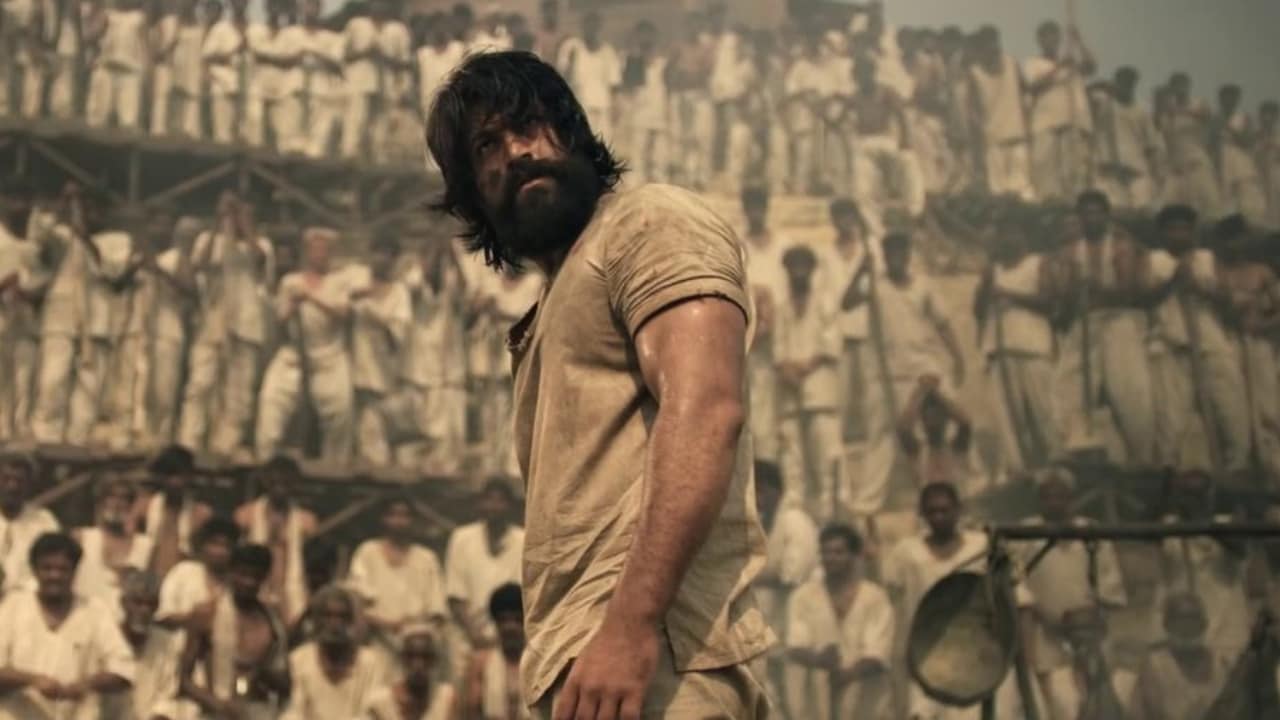
Director: Prashanth Neel
In my opinion, It would take years to understand, let alone replicate the narrative framework of KGF. I say this with confidence because we still dismiss the screenplays of Sholay and Baahubali (Part One alone) as a grand masala caper. At the surface, KGF is just another hero worship film, filled with lines of adulations and over the top actions. But Prashanth (writer-director) employs a very unusual mix of genres to bring out an original screenplay that is parts stream of consciousness, parts mythical fantasy, parts epic and parts philosophy. While many have attempted movies covering these narrative styles, what sets KGF apart is how Prashanth plays with each style of storytelling and eventually pushing their boundaries to areas seldom visited.
As safe as it gets, Prashanth initially frames the story of an orphaned boy who becomes a don and then by the turn of events a messiah, through the narration of the author of a banned book. But the audacity of the director comes to fore when he tweaks the author's narration as a stream of consciousness. As a result, the narrative leaps jumps and flies at unexpected places into the future, revealing the legend of the protagonist, Rocky. I saw this as a style not just to startle the audience, but to pause the narration at high points to tell the audience that if you thought this was bodacious, wait till you see what he does in the future. This style also works because from the narrator's point of view, as he orates one bodacious event after the other orchestrated by Rocky, his mind trails off to the startling first impressions he received of Rocky as he started his investigation.
From the recently released Vada Chennai to Tarantino's Kill-Bill, the pause in narration is used excellently to provide additional information for the action that is about to happen. Prashanth here pushes this strategy even further. Take for example the troupe of Rocky's memories of his mother. The movie starts with it and as Rocky moves to Bombay and becomes rich and powerful, the memories start fading away except the promise she took from him. Even the promise to become powerful, rich and a great man metamorphoses into the idea of being a brand by himself. As he traces his roots back to Bangalore and KGF, the memories slowly creak back into his mind at many critical moments. The audacity in Prashanth's writing again comes to the fore as he mixes these portions that form the philosophical backbone of the film with the prophecy of the saviour. Not contained as ever, Prashanth adds depth to the powerful mythical construct by creating a psychological play between the slaves and Rocky. The manner in which this play culminates into a self-fulfilling prophecy is narrated through multiple perspectives, each riveting on its own.
In the climax, as Rocky ascend the stairs of the Durga temple, not just to pray but to take his place as the Shiva to the Goddess Durga, Prashanth pauses the narration for one last time to bring back a memory of Rocky's mother The information in this memory is going to create a very vivid and goosebump-worthy image of revolution in each audience's mind. Yes, Prashanth has also broken the cardinal rule of filmmaking: sometimes telling can be more powerful than showing.
So does the movie have no problems? Of course not. I felt the regular hero troupes such as introduction songs, item numbers and few crowd-pleasing moments to magnify the power of Rocky could have been better integrated within the film. One example is how well the kids pleasing moments in the mines work within the film's narrative while adding to the star's charisma, but the kids pleasing moments in Mumbai are generic. Another issue is while Rocky is beaten by circumstances often in the film, he remains invincible to all the villains. This weakens the powerplay in the film. But these are just minor quibs on the most audacious Indian film I have seen since Baahubali Part 1. Awaiting the next part of this series.
Comments